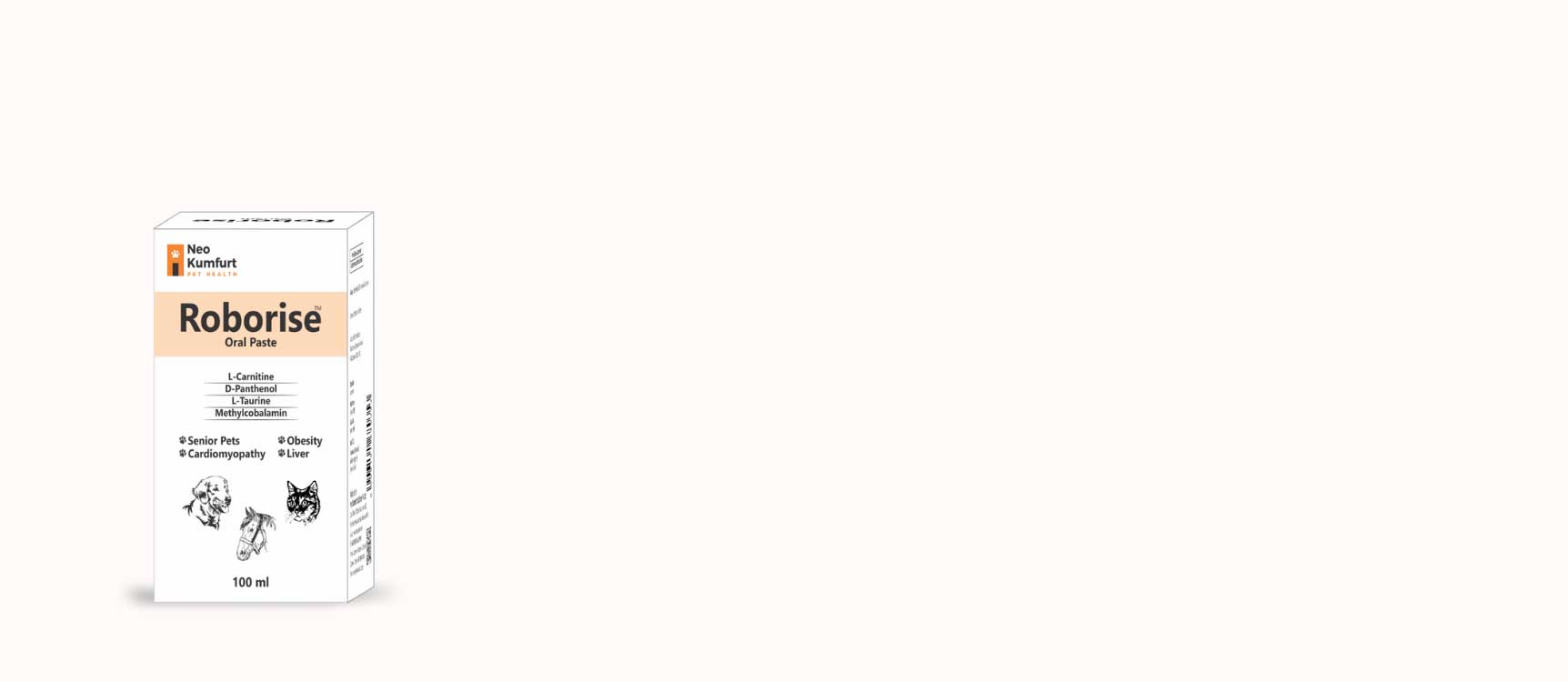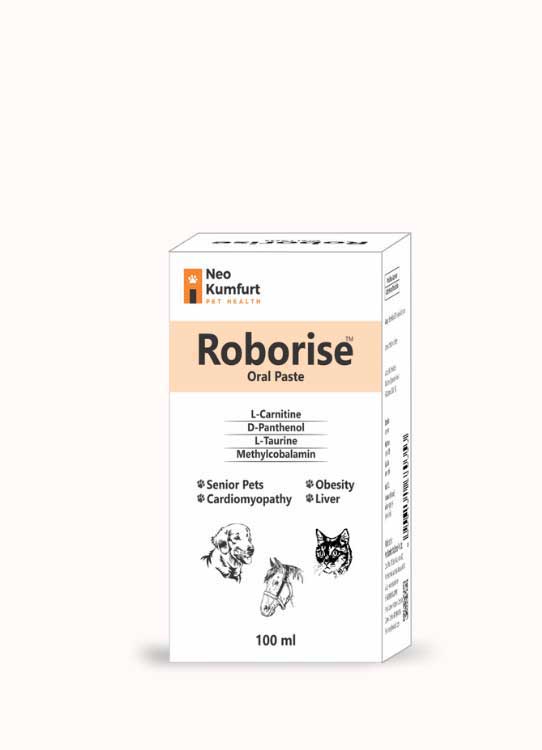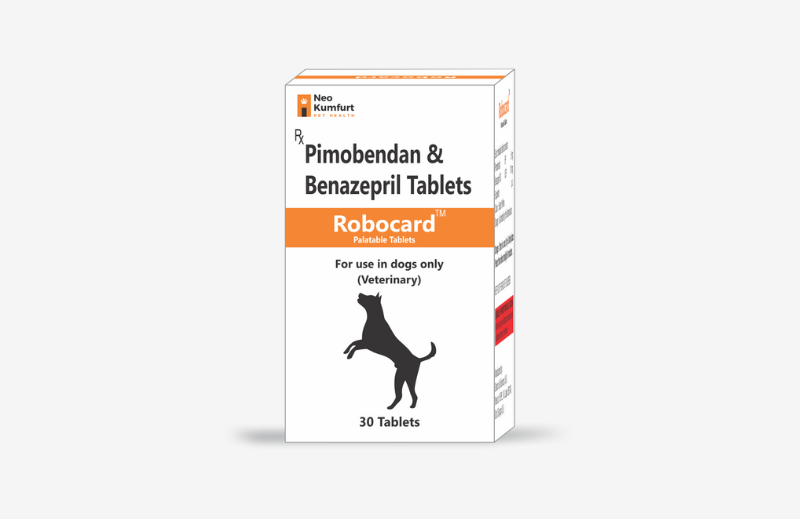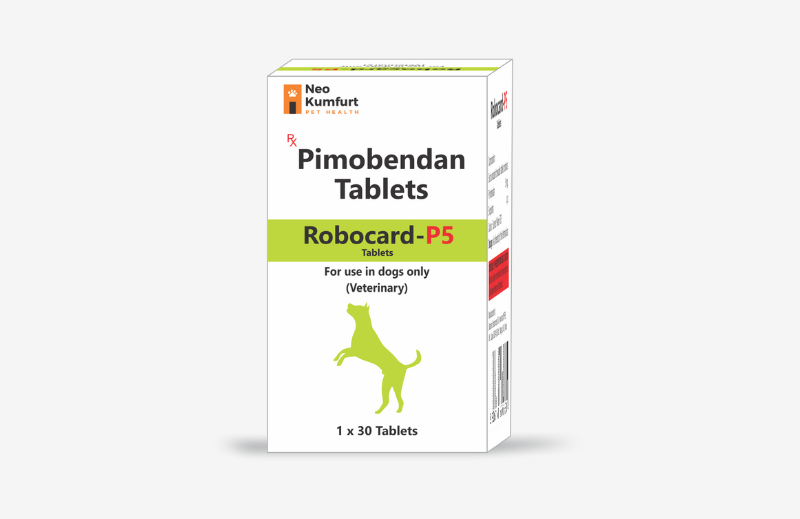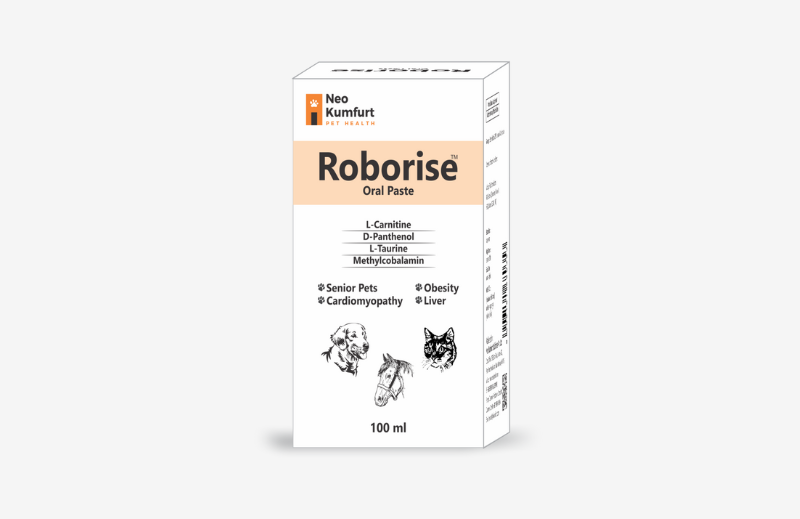- L-Carnitine is essential in the process of transporting fats into cells for energy (ATP) production, Specifically, carnitine is required for transporting long chain fatty acids and their derivatives into the mitochondria of cells.
- The mitochondria are the tiny little powerhouses present in each cell that convert fatty acids into the ultimate chemical energy source of the body, known as ATP. Mitochondria are abundant in the cells of all organs that have a large energy requirement, including semen and the heart, epididymis, kidney, skeletal muscle and liver.
- Co-enzyme Q10 helps maintain the integrity and function of the heart muscle, which is crucial for dogs with conditions like myxomatous mitral valve disease (MMVD) & combats oxidative stress, which can damage heart cells and contribute to heart disease.
- cats do not synthesize L-Carnitine at all and are 100% dependant on dietary sources of L-carnitine.
- L-carnitine is an essential aid in the treatment of obesity as it aids in the metabolic conversion of fat.
- Carnitine is vital for the management of cardiac disease in both dogs and cats as the cardiac muscle is entirely dependent on fatty acids as a source of energy.
- Carnitine is an important aid in the management of hepatic lipidosis and hepatitis.
- Kidney disease also warrants supplementation, since L-carnitine is synthesized to some extent in the kidneys.
- It is a necessary supplement for older dogs and has been proven to reverse mental aging and improve cognition in older dogs.
- L-Carnitine is a valuable aid for breeding dogs and cats. Male animals are benefited with increased sperm motility and maturation.
- Skeletal muscle is the storehouse of L-carnitine. Dogs with skeletal muscle dysfunction greatly benefit from supplementation.
Composition
| Each ml contains | |
| L-Carnitine | 200 mg |
| D-Panthenol | 20 mg |
| L-Taurine | 100 mg |
| Methylcobalamin | 300 mcg |
| L-Lecucine | 19.04 mg |
| Vitamin E | 20 mg |
| EPA (Eicosapentaenoic Acid) | 18 mg |
| Coenzyme Q10 | 14 mg |
| Gamma Linolenic Acid | 6 mg |
| Magnesium Citrate | 0.3 mg |
| Potassium Citrate | 0.06 mg |
| Sodium Selenite | 0.004 mg |
Dosage and administration
| Dog/Cat: 1 ml per 10 kg body weight |
| Adult Horse : 10 ml |
| Administer 2-3 times weekly or as directed by Veterinarian. |
| To administer, place the syringe in the corner of the mouth and place the dose over the back of the tongue. |
| L-Carnitine is a conditionally essential amino acid which is synthesized (25%) in the liver and kidney from precursors like lysine, methionine, niacin, Vitamin B6, Vitamin C & Iron. The remaining 75% of daily L-carnitine requirement is obtained from dietary source like red meat. Cereals, grasses & vegetables are very low in L-carnitine. |
Heartbeats of Joy: Pioneering Cardiac Care
Unlocking Healthy Hearts for Vibrant Lives
ROBOCARD P5
Robocard P5 is indicated for the management of the signs of mild, moderate or severe (modified NYHA Class IIa, IIIb or IVc) congestive heart failure in dogs due to atrioventricular valvular insufficiency (AVVI) or dilated cardiomyopathy (DCM).
Read moreROBORISE Plus
Optimize your pet's well-being with Roborise Plus, an oral paste enriched with L-Carnitine. It addresses cardiomyopathy, obesity, and age-related issues while improving cognitive function in pets. It enhances reproductive function, aids in early growth, and supports skeletal muscle health. Experience the power of Roborise for optimal pet health.
Read moreExplore Therapies
Innovation through science and technology to maximise health, and wellbeing of companion animals
-
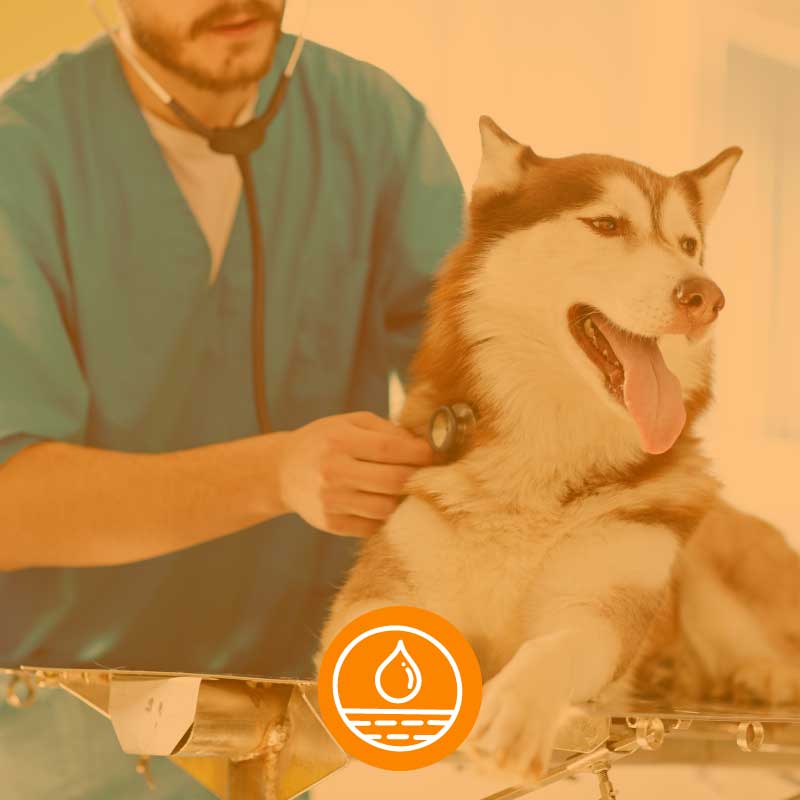
-
View Products
DERMA/SKIN CARE
Our dermatological products are designed to nourish and protect your pet's skin, promoting a healthy and lustrous coat while addressing common skin conditions.
-

-
View Products
LIVER CARE
Our liver care solutions support liver health, aiding in detoxification and maintaining optimal liver function for your pet's overall well-being.
-
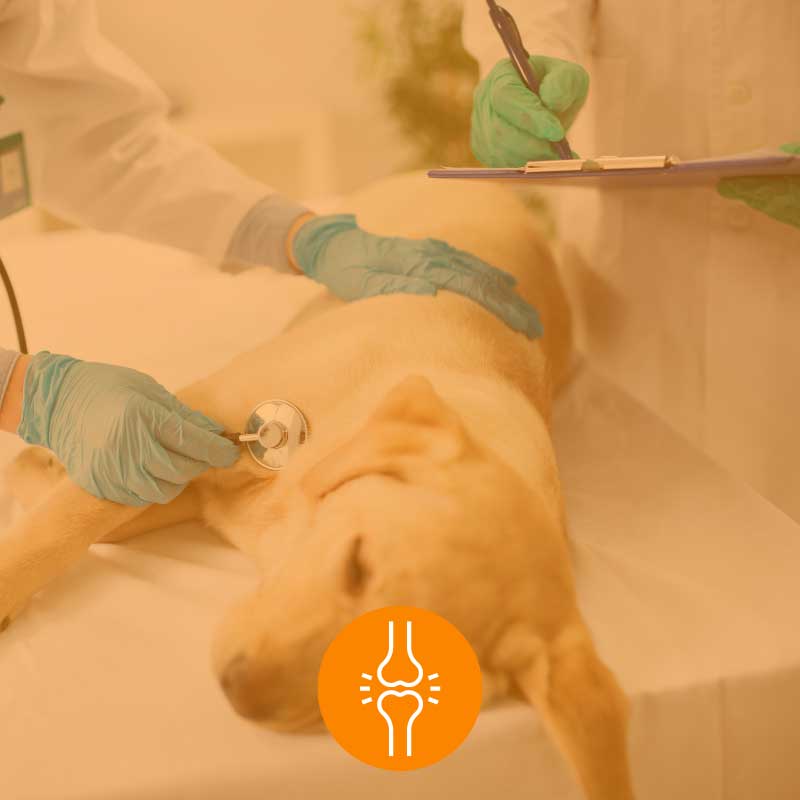
-
View Products
JOINT CARE/BONE HEALTH
Our joint care and bone health products are formulated to support mobility, joint flexibility, and bone strength, helping your pet stay active and agile.
-
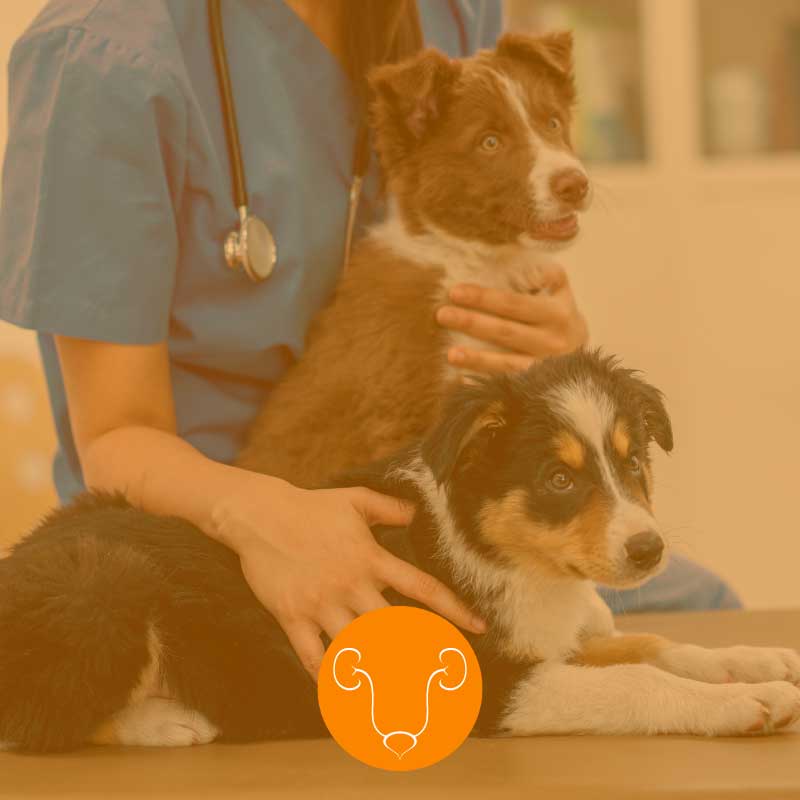
-
View Products
RENAL CARE
Our renal care products are specifically crafted to support kidney health, promoting proper renal function and aiding in the management of kidney-related issues.
-

-
View Products
CARDIAC CARE
Our cardiac care products are tailored to support cardiovascular health, promoting a healthy heart and optimal circulation for your pet's vitality.
-

-
View Products
NUTRITION
Our nutrition range offers specialized diets and supplements formulated to meet the unique nutritional needs of pets at different life stages or with specific dietary requirements.
-

-
View Products
EYECARE
Our eyecare products provide gentle and effective solutions for maintaining eye health, addressing common eye conditions, and promoting clear vision in pets.
-

-
View Products
EARCARE
Our earcare solutions are designed to maintain ear hygiene, prevent infections, and alleviate discomfort caused by common ear problems in pets.
-

-
View Products
ANTIBIOTIC
Our antibiotic products are targeted treatments that combat bacterial infections, helping to alleviate symptoms and support the recovery process in pets.
-
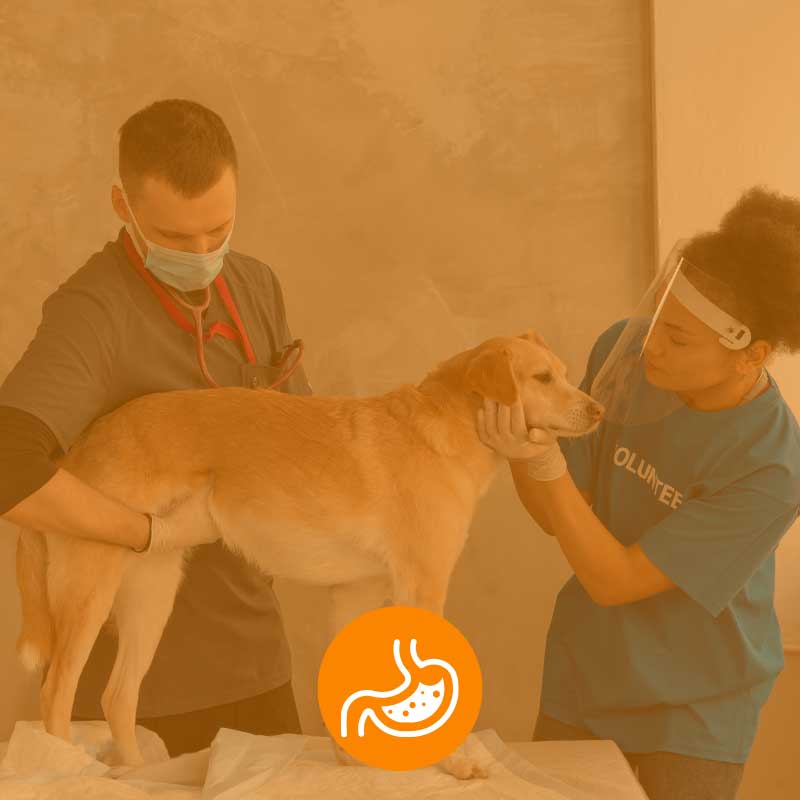
-
View Products
DIGESTIVE HEALTH
Our digestive health products promote a healthy digestive system, supporting optimal nutrient absorption and maintaining a balanced gut microbiome in pets.
-

-
View Products
IMMUNITY
Our immunity products are formulated to strengthen the immune system, providing vital support to help pets ward off infections and stay healthy.
-
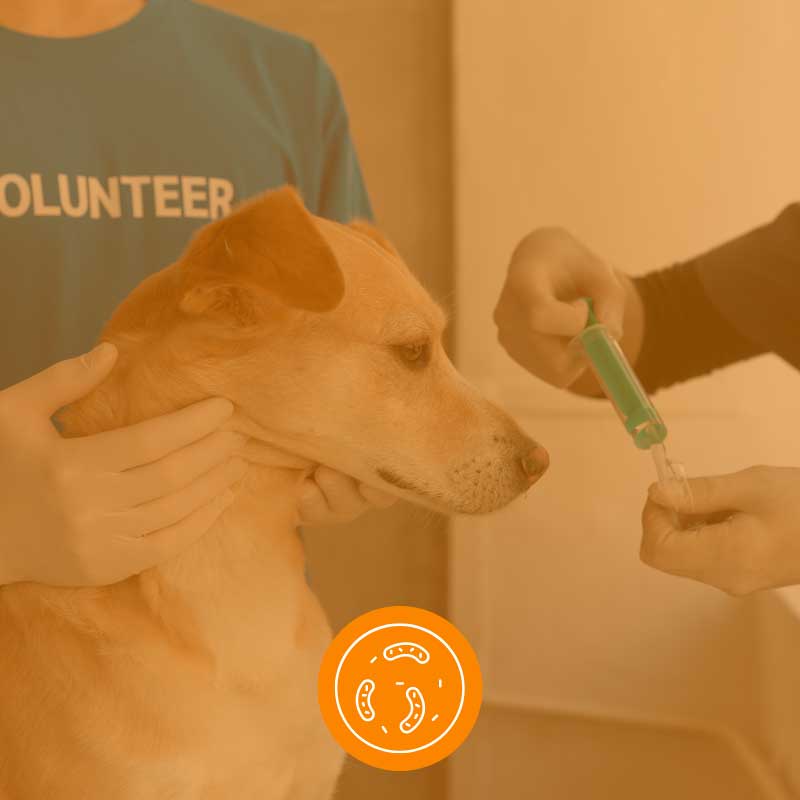
-
View Products
PARASITES
Our parasite control solutions offer effective protection against external and internal parasites, safeguarding your pet's health and well-being.
-

-
View Products
PAIN & INFLAMMATION
Our pain and inflammation management products provide relief from discomfort caused by inflammation or chronic pain, enhancing your pet's comfort and mobility.
-

-
View Products
RESPIRATORY
Our respiratory care products aid in maintaining healthy respiratory function, supporting optimal lung health and promoting clear airways in pets.
-

-
View Products
NEOPLASIA
Our neoplasia products focus on supporting pets with cancer, providing specialized care and supportive treatments to help manage the condition and improve quality of life.
-
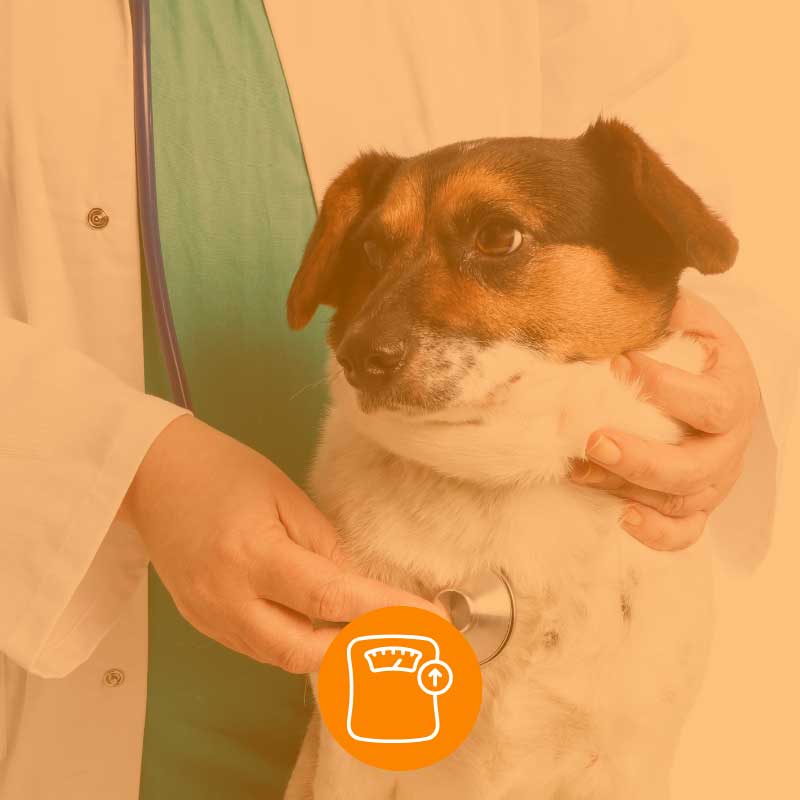
-
View Products
OBESITY
Our obesity management solutions offer tailored approaches to help pets achieve and maintain a healthy weight, reducing the risk of obesity-related health issues.
-
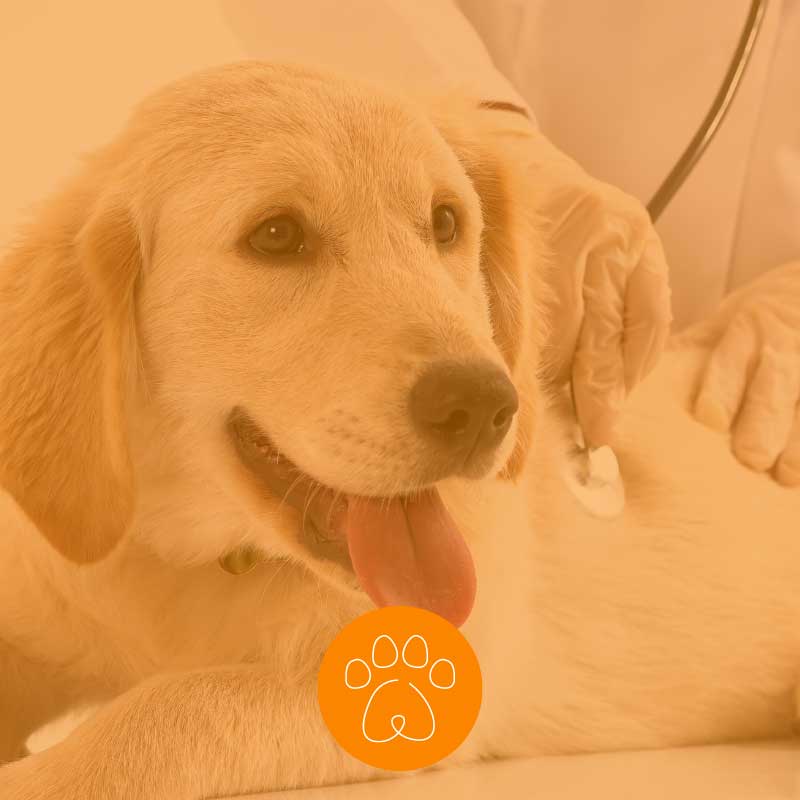
-
View Products
SENIOR PETCARE
Our senior petcare products address the unique needs of aging pets, supporting overall health, vitality, and cognitive function during their golden years.
-
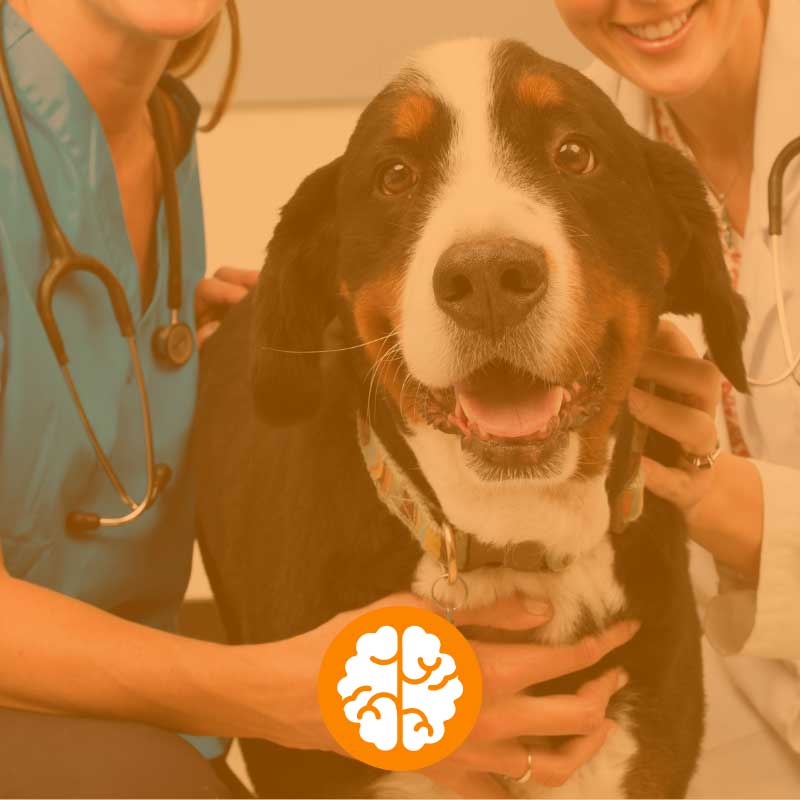
-
View Products
NEUROLOGY
Our neurology products provide support for neurological conditions in pets, helping to manage symptoms and maintain optimal brain and nervous system function.
© 2016 Neo Kumfurt Solutions Pvt. Ltd. Designed by Stack Softwares


